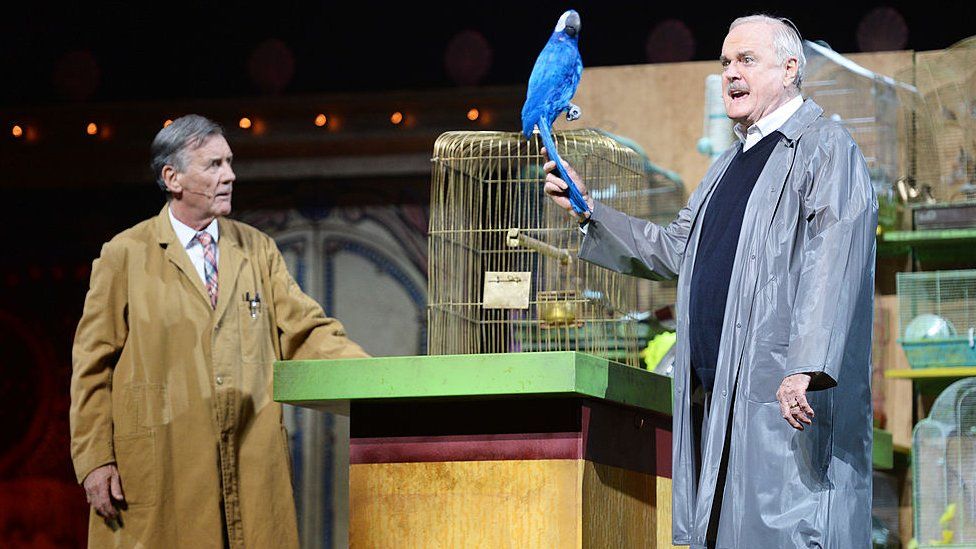
CIATTARELLI: This Is Why NJ Needs Education Reform
December 21, 2023
BREAKING: South Orange-Maplewood Principal Out Under Mysterious Circumstances
January 2, 2024NJ’s Teacher Evaluation Law Is Not Dead Yet (Cue Monty Python)
New Jersey’s teacher evaluation system—once celebrated for ensuring that students will be taught by effective instructors—has suffered a long, slow deterioration. Yet it’s not too late for recovery, confirmed by hopeful signs that the NJ Assembly may not push through a bill, despite fierce lobbying by the NJ Education Association (NJEA), that would reduce teacher evaluations from annually to every three years.
The bill, A5877, was dropped last week during the lame-duck session and would “revise schedule for summative evaluations of certain education professionals” and “limit collection of teacher generated student growth data.” In other words, water down the state’s teacher evaluation law, TEACHNJ, passed by the Legislature in 2012 and signed by then-Governor Chris Christie. NJEA says the current teacher evaluation process is too much work for teachers. The bill’s passage seemed like a done deal, given NJEA’s heft.
But now people in high places—Senate President Teresa Ruiz (architect of the 2012 law), superintendent David Aderhold of West Windsor-Plainsboro, Karen Bingert, executive director of the New Jersey Principals and Supervisors Association, Betsy Ginsburg, executive director of the Garden State Coalition of Schools—are asking the Assembly to put on the breaks. In what other profession are people not evaluated annually? Why pass a bill that will affect 1.3 million students without a full airing of the issues?
And, really, TEACHNJ is already a shadow of itself.
Originally the law said that 30% of a teacher’s evaluation would be tied to student academic growth measured by standardized testing. Christie lowered that to 15% because moving from 0% to 30% seemed too much too soon. The first year TEACHNJ was implemented, 97% of NJ teachers were rated “effective” or “highly effective.” Yes, it’s a pain for teachers to have to collect data to prove their effectiveness, but they’ve gotten it done for over a decade without anyone keeling over.
When Gov. Phil Murphy took office, he lowered the 15% to a mere 5%, almost completely disconnecting teacher ratings from objective measurements of how much students learn. NJEA celebrated by issuing a statement that said the Governor and the Department of Education had earned their “respect.”
The new bill would be the death blow to an already anemic teacher evaluation law. Thankfully, people are speaking up.
From NJ Spotlight:
“It has been over a decade, and we should have a conversation about the policy and its intent,” said state Sen. Teresa Ruiz (D-Essex), the Senate Majority Leader and author of the state’s current teacher tenure law. “But it has to be thoughtful and not rushed.”
“I’m highly concerned about the speed of change and the lack of conversation that’s occurring with bills that have significant impact on instructional programs for students,” said West Windsor-Plainsboro Regional School District Superintendent David Aderhold.
“I tend to look at lame duck as an opportunity to close out those lingering issues that have been shuffled around during the legislative season. When it comes to big issue topics like education, I really don’t feel that lame duck is the appropriate time to address something new,” [Karen] Bingert [of NJPSA] said. She added, “I don’t think there is any logic in trying to fast-track something as major as the evaluative process that is used for the adults who are charged with the very weighty and sincere responsibility of caring for and educating our children. I can’t think of a single other field where you can do well in one year and not be evaluated the following year or the year after that.”
Of course, NJEA is pushing back. Deb Cornavaca, now NJEA director of politics and policy and previously Murphy’s Chief-of-Staff, protested “To some people it seemed like it came out all of a sudden, but frankly, this was after a lot of talking, research and thinking the solution that we propose coming out of the gate.”
But what’s best for students? Oh, right—that’s not on NJEA’s agenda. As Marc Gaswirth noted earlier this week, NJEA’s agenda “first and foremost, centers on members’, not students’ interests. To the extent that they may overlap, the connection is usually minimal and incidental.”
Three cheers for those who defend the interest of our kids.





